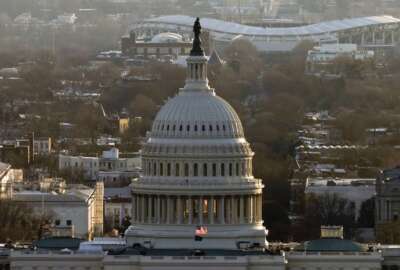Issa embraces White House plan for postal reform
The Republican-controlled House Oversight and Government Reform Committee is starting over on postal reform legislation and taking as its template a surprising...
The Republican-controlled House Oversight and Government Reform Committee is starting over on postal reform legislation and taking as its template a somewhat surprising source — the White House’s fiscal 2015 budget request.
Chairman Darrell Issa (R-Calif.) told members of the committee and the deputy director of the Office of Management and Budget during a hearing Tuesday that he intends to “embrace to the greatest extent possible” the entire slate of legislative proposals for overhauling the Postal Service included in the President’s budget request.
Bill markup coming soon
Issa said he has concerns with just one White House-backed proposal, a measure to make permanent the emergency two-year rate hike approved late last year.
“But sans that, the rest of the proposal I find to be a good starting point for legislation that hopefully the administration would broadly push all parties to embrace,” he said.
Issa said he plans to mark up legislation containing the Obama administration’s proposals after the upcoming two-week congressional recess. In the meantime, he encouraged members to write to OMB to seek input and clarification on other proposed reforms.
“If there are additional efficiencies or necessary changes … I want to make sure those are considered, but my goal is to pass a net cost-reduction piece of legislation out of this committee to help ensure the survival of the Postal Service,” he said.
OMB Deputy Director Brian Deese laid out the administration’s proposal at the oversight hearing Tuesday. Among the proposals are rescheduling — though not eliminating — a series of steep automatic payments the agency is required to make to prefund future retirees’ health costs. In addition, it proposes limiting the closure of rural post offices and returning overpayments USPS has made to the Federal Employees Retirement System, which the administration estimates would free up about $5 billion.
Dems disagree with White House on postal plans
But much to the ire of congressional Democrats and postal-employee unions, the administration plan also supports giving USPS the authority to move to five-day mail delivery and to begin shifting more toward centralized or curbside delivery.
“There are some members on our side of the aisle and I suspect that there may be members on your side of the aisle, nevertheless, that disagree with both you and the President,” Rep. Stephen Lynch (D-Mass.) said in response to Issa’s newfound support of the White House’s budget proposal. “So we would want to be part of that dialogue.”
For his part, Deese told members of the committee the Obama administration only supports reducing the agency’s delivery schedule as part of a comprehensive package of reforms to the agency.
“It is our belief that (five-day delivery) needs to be part of a comprehensive and balanced plan,” he said. “Taken in isolation, the move to five-day delivery wouldn’t solve the challenges.”
But Democrats on the committee say USPS risks losing a competitive advantage if it backs away from Saturday first-class mail delivery.
Rep. Gerry Connolly (D-Va.) also criticized OMB for accepting the Postal Service’s analysis of moving to five-day delivery, which he said was not a “slam dunk” and has not undergone review by the Postal Regulatory Commission.
“Frankly, it doesn’t look like you looked at it at all. … It troubles me no end that this administration has accepted that at face value absent any analysis,” Connolly told Deese.
Even Republicans may not be a lock on supporting five-day delivery, he added.
A nonbinding House resolution calling for the continuation of current delivery levels introduced by Rep. Sam Graves (R-Mo.) last year has garnered 210 cosponsors, which is just eight sponsors away from an absolute majority in the House, Connolly pointed out.
Not likely to be final word
Issa’s support of the White House proposal comes as a previous overhaul effort — adopted by his committee last summer entirely along partisan lines — has languished in the House.
But even if adopted by Congress, the White House’s proposal likely wouldn’t be the final word on postal reform.
The administration plan is more scaled back than a comprehensive reform bill approved by the Senate Homeland Security and Governmental Affairs Committee in February and also less aggressive than Issa’s previous effort.
Deese told the committee the administration plan, which would free up $20 billion over the next three years, aims to provided the Postal Service with “sufficient near-term financial relief to avoid destabilizing near-term measures that could undermine the Postal Service’s core strengths.”
Postal-employee unions, on the other hand, contend the administration’s plan simply amounts to a slashing of postal services.
“Congress should focus on unchaining USPS from the retiree health pre-funding burden — which is required of no other public or private entity — and freeing it to grow and innovate,” National Association of Letter Carriers President Fredric Rolando said in a statement. “Discussing job-killing proposals that degrade or dismantle our invaluable postal networks is not the conversation we should be having.”
RELATED STORIES:
What can USPS learn from TRICARE in funding retiree health care costs?
Even as postal losses shrink, USPS continues call for agency overhaul
Postal reform bill heading to Senate floor
Copyright © 2025 Federal News Network. All rights reserved. This website is not intended for users located within the European Economic Area.





